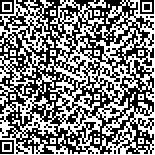| 摘要: |
| Notice that intelligent control is developed based on the learning and control abilities of human beings. As such, an ideal intelligent control system should not only have the ability to adapt to complex dynamic environments, but also the ability to imitate human learning. The learning ability means to acquire the knowledge of uncertain closed-loop dynamics from dynamic environments, and use the stored experience knowledge to improve control performance [1,2]. Such an autonomous learning has been viewed as one of the most important and indispensable capabilities to achieve a high degree of system autonomy. The existing intelligent control schemes, including adaptive neural control and adaptive fuzzy control, are usually exclusively on the system stability by the use of online adjustment parameters to estimate the unknown dynamics, in which the exponential convergence of the estimated parameters is not a major concern. As a result, most of existing intelligent control schemes still need to readjust the controller parameters for the same or similar control tasks. In this sense, as shown in [3], the learning ability of intelligent control is actually very limited and still needs the further research. However, it is very challenging to acquire and express the knowledge of unknown dynamics in a nonstationary or dynamic environment.... |
| 关键词: |
| DOI:https://doi.org/10.1007/s11768-020-9292-1 |
|
| 基金项目: |
|
| Recent advances on dynamic learning from adaptive NN control |
| Min WANG,Cong WANG |
| (School of Automation Science and Engineering, South China University of Technology, Guangzhou Guangdong 510641, China) |
| Abstract: |
| Notice that intelligent control is developed based on the learning and control abilities of human beings. As such, an ideal intelligent control system should not only have the ability to adapt to complex dynamic environments, but also the ability to imitate human learning. The learning ability means to acquire the knowledge of uncertain closed-loop dynamics from dynamic environments, and use the stored experience knowledge to improve control performance [1,2]. Such an autonomous learning has been viewed as one of the most important and indispensable capabilities to achieve a high degree of system autonomy. The existing intelligent control schemes, including adaptive neural control and adaptive fuzzy control, are usually exclusively on the system stability by the use of online adjustment parameters to estimate the unknown dynamics, in which the exponential convergence of the estimated parameters is not a major concern. As a result, most of existing intelligent control schemes still need to readjust the controller parameters for the same or similar control tasks. In this sense, as shown in [3], the learning ability of intelligent control is actually very limited and still needs the further research. However, it is very challenging to acquire and express the knowledge of unknown dynamics in a nonstationary or dynamic environment.... |
| Key words: |

